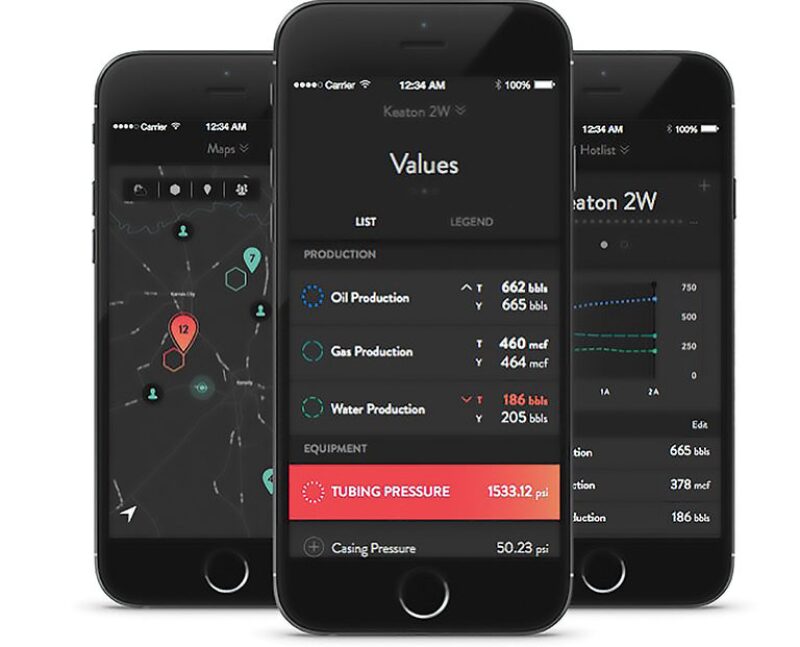As time goes by, an increasing number of new processes that oil and gas companies want to push to their workforce will come in the form of an app. This is true for field technicians as well as production engineers.
But just as with anytime change is introduced, the improvements these apps are intended to deliver may not be lasting—or realized at all—without strong internal acceptance.
ChaiOne is a Houston-based app developer that has built its business around this conundrum. In its 9 years, the company has worked for several of the upstream industry’s most recognizable names including ExxonMobil and Schlumberger.
Chief Executive Officer Gaurav Khandelwal said the company’s success lies in its bottoms-up strategy, which begins with the end user and “understanding their problems, stresses, frustrations, and emotions.”
This work relies on teams of behavioral psychologists, anthropologists, and software interaction engineers who are tasked with figuring out new ways for workers to save time and money for their companies. Like others who promise efficiency improvements to the oil and gas business, a lot of ChaiOne’s efforts are centered around reducing how much time is spent on regular working hours and overtime.
“When we take the user-experience-driven approach, and send people into the field to study a process, often we find tremendous amounts of waste in the way things are being done,” explained Khandelwal, adding that, “In 4 to 6 weeks, we can find millions of dollars in savings in these companies.”

Smarter Field Repair
Many of the software products that ChaiOne has created cannot be discussed thanks to the industry’s penchant for nondisclosure agreements. But among those that it can speak freely about is CygNet, which was developed for international service company Weatherford.
This iPhone app connects with oilfield SCADA systems to show engineers production trends or to relay important alarms. Khandelwal said operators who use the app—12 of which supplied input to steer its development—are now using fewer field technicians to deal with routine oilfield problems.
When a worker is on his way back from a repair job, it is not unusual for another problem to arise at a wellsite just 10 minutes away. In the past, Khandelwal said that the technician would likely be unaware of a nearby failure, and because dispatch did not know they were close by, an additional crew would be sent out.
With the CygNet app, the reverse is now true for its users. When a repair team is out on location and a nearby well sets off an alarm, CygNet sends a geo-targeted notification. And just as important, the app can also help them decide if the issue needs to be attended to at all.
Dim the Lights
Khandelwal emphasized that the design of such apps also needs to keep in mind how things such as the time of day can affect user experience. “When you have a guy waking up in North Dakota at 3 a.m. because some SCADA system alarm is going off, let’s not design an app that has white backgrounds and blinds them when they wake up,” he said.
The smarter alternative is to keep the app’s interface dark during those predawn hours—a feature known as night mode. The app should also use a font size big enough for a waking person with blurry eyes to read. It also needs to make it easy to switch an alarm off if the user sees it is a nuisance alarm vs. a real concern.
ChaiOne also scrutinizes how apps are physically used. For one iPad app created for an offshore producer, the company made it compatible with a screen protector so workers could use it without removing their greasy gloves. “Little things like that allowed our application to become successful,” Khandelwal said.
The theme behind all of these use cases is that apps which introduce a new way of doing things must not burden personnel with too many extra tasks or add stress to their usual routines. Khandelwal said the emergent term for this strategy is “radical simplification.”
Your Voice Will Matter
Looking to the future, ChaiOne sees several new business opportunities that go beyond mobile phone apps. The company is certified to develop software tools for GE’s industrial Internet-of-things platform called Predix and is also working on apps for Apple’s new augmented reality store, which launched in September.
Also of interest for the firm is how upstream companies can take advantage of the burgeoning category of voice-controlled computer assistants, such as the popular Amazon Echo. These largely domestic devices could be installed on a rig to record a driller’s daily report or to read out critical data sets concerning a well plan—possibly preventing someone from having to open and sort through a spreadsheet, for example.
Khandelwal said this technology is equally justifiable for those working in the office. Any task related to calling someone with a question, running a routine calculation, or waiting on a file attachment may in the near future be done just by talking to a small Internet-connected device.
“All of this repetitive work can be done in the cloud and it can all have a voice interface—such that you may not even have to build an app for certain things,” he said. “Having an app means you have to download something and open it when you want to use it, and maybe you can just do that with your voice.”


